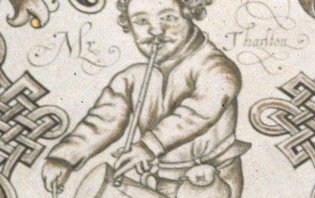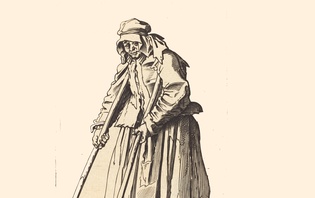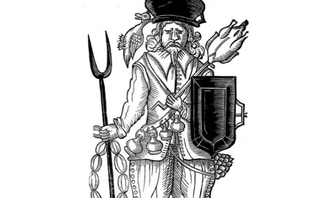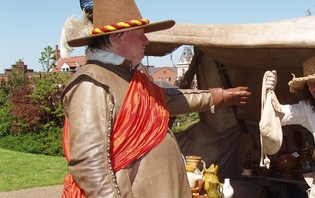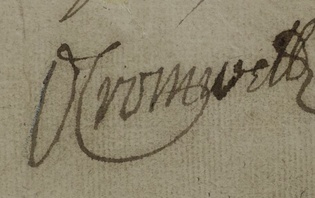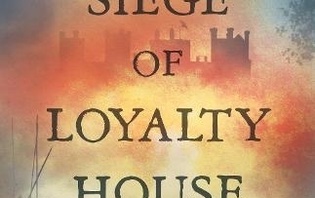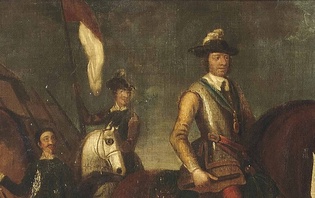‘A turbulent Crosgrained [blank]’: Reputation and Defamation in Civil War Petitions
Recently, Civil War Petitions has been gathering petitions from maimed soldiers and war widows in the collections of the Staffordshire Record Office. During the course of this work, our attention has been drawn to the Lichfield Bawdy Courts project. Inspired by some of the amusing and – at times – intriguing early modern insults that have been uncovered by that project, Ismini Pells takes a look at the role of defamation and character assassination in the Civil War Petitions documents.
“Reputation and honest Fame; without the which, as one saith, we are dead long before we are buryed.”
H. Peacham, The Compleat Gentleman (London: 1622), p. 186.
So spake the seventeenth-century author and lifestyle guru, Henry Peacham. There is no doubt that reputation mattered in the Early Modern period and that contemporary men and women went to great lengths to defend their good name.
Disputes over reputation often became so heated that individuals resorted to violence. Duelling amongst the aristocracy was one of the more spectacular examples of this, a problem which particularly plagued the officer corps of the royalist armies during the Civil Wars. The problem was far from a new one created by the heightened tensions surrounding the Civil Wars, but an entrenched phenomenon in English Society. The English nobility may not have become embroiled in some of the more extreme examples of violence espoused by their French counterparts, but the problem of duelling was such that Charles I had re-established the High Court of Chivalry in 1634 to persuade the nobility to settle their differences in court rather than by arms. The High Court of Chivalry records are available online and these give a fascinating insight into the types of insults that were used by and against the seventeenth-century English gentry and aristocracy. For example, Richard Machen of Benson in Oxfordfordshire, gentleman, complained that his neighbour John Waters called him ‘a base shitten gentleman, and ‘bade me kisse his arse and sayd a turd for you, and that he would have me whipped’.
The poorer sorts too could take to the church courts to defend themselves against those who had slandered them in public. In Domestic Dangers: Women, Words and Sex in Early Modern London (Oxford: OUP, 1996), Laura Gowing collected depositions from the Consistory Court of London for a study on defamation in the late sixteenth and early seventeenth centuries. Gowing demonstrated that a large majority of the urban plaintiffs were women seeking to guard their sexual reputations, often from insults by other women. Many defamers resorted to sexual slander in disputes about other long-standing issues. Amongst the examples Gowing collected was the invective from Henry Wilshire to Elizabeth Stott that ‘thou art a private queane, a base queane, thou keepest a private knave in thy house or else thy bed would not goe jigge and jogge so often as it doth’. These are the types of cases currently being gathered by the Staffordshire Record Office’s ‘Lichfield Bawdy Courts’ project.
For ‘ordinary’ people, as scholars such as Gowing, Alex Shepard and Craig Muldrew have shown, defending one’s good name was crucial in a world where everyday transactions were based on credit and reputation was the basis of one’s credit status. Furthermore, monarchical government in England rested upon a significant foundation of collaboration and negotiation from the highest to the lowest in society. This meant that when someone came into contact with the law, their standing amongst their neighbours often played a crucial role – as some of our petitioners found out.
As a previous blog demonstrated, it was crucial for maimed soldiers and war widows to present themselves to the courts as upright, moral individuals – as ‘the deserving poor’. The opinion of one’s community could play a vital role in backing such claims up. No fewer than 29 residents of Springfield in Essex endorsed the petition submitted by Oliver Bonden, showing their support for Bonden’s request for relief on behalf of his injured son, who had fallen when his horse was slain at the Second Battle of Newbury. Bonden was successful in his petition, being awarded a gratuity of 40 shillings. In Abergele in Denbighshire, the ‘freeholders, & inhabitants of the parish’ submitted a certificate to the Quarter Sessions on behalf of Luce verch John, whose husband had died in parliament’s service. They testified that her husband had, during his life, ‘Lived civilly & honesty & mayntayned his said wief and children in a decent way according to his degree’. Luce was rewarded with a pension of 40 shillings a year.
But what happened when a petitioner was not well regarded amongst his neighbours?
Not only would the courts not award financial relief if they were not convinced that a claimant was worthy of it, but the courts were also not afraid to remove pensions from those they adjudged to be suspect individuals. Sometimes a JP’s bad opinion of a claimant might be formed during a face-to-face encounter with them. The West Riding of Yorkshire JP Roger Portington, who went on to support draconian measures against maimed soldiers who had formerly been in parliamentarian service, had been assaulted by a maimed soldier when Portington had served as Treasurer for Maimed Soldiers immediately prior to the Civil Wars. His assailant was later indicted for the attack.[1]
More commonly, however, the JPs were influenced by the censure of a claimant’s local community. For example, William Ebrall was ejected from his pension by the Warwickshire JPs because he had ‘lately run out of the Countrey w[i]th the wife of John Hancox of Beusall reputed a Com[m]on Harlott’. Such information could only have come to the court’s attention through local knowledge, gossip and/or an informer. Neighbours were certainly quick to complain when pensions were granted to those they categorised amongst the idle and immoral. The inhabitants of Tenbury protested to the Worcestershire JPs against the pension granted to Nathaniell Maund, who
‘hath for these many yeares wholely declin’d his trade, giving himself alltogether to begging, both in ye Town & Country, comitting what he gains thereby, to sale; and ye money he very oftens converts to drunkenesse. and he is a common drunkard; a Railer, & will abuse any of ye Town or parish with most base & opprobrious language. In brief, he is of ye most vicious life & conversation of any person in ye Countrey’.
Likewise, in Lincolnshire, the inhabitants of Skillington petitioned their local magistrate, the earl of Lindsey, that John Walpole was undeserving of his pension. They issued the earl with a five-point invective against Walpole. It was claimed that the veteran ‘did Falsly informe this honorable Court, that by reason of his Age he was past his worke, and Could get none For that little he could doe (when in truth he refused A seruice, through lasines) and said he Could get more by the halfe by beging’. Amongst his other misdemeanours, Walpole was accused of having gone ‘a King katching to Woster [Worcester]’ and being ‘A searcher For Armes vnder old Noll, An assistant to one Thorp a sequestrator, a trooper in ye time of Rebellion, a Contentious person’. It seems that the inhabitants of Skillington could not even find the words strong enough to describe Walpole’s apparent bad character, calling him ‘A turbulent Crosgrained [blank]’.
The fate of men like Ebrall, Maund and Walpole, who found themselves facing the prospect of being cut off from financial assistance is unknown. Of course, it was a moot point between these men and their neighbours as to how far they could have maintained themselves through other means. Yet, the numerous references to poverty and starvation throughout the documents on Civil War Petitions from those who had not previously claimed, or been able to claim, pensions and gratuities indicate the potential seriousness of isolation from state relief. Such references should not be dismissed entirely as exaggerations for dramatic effect. Thus, it seems that a good reputation in seventeenth-century England was not simply requisite for the social niceties of life, it was – at its most extreme – a matter of life and death.
[1] I am very grateful to Andrew Hopper for this reference.

